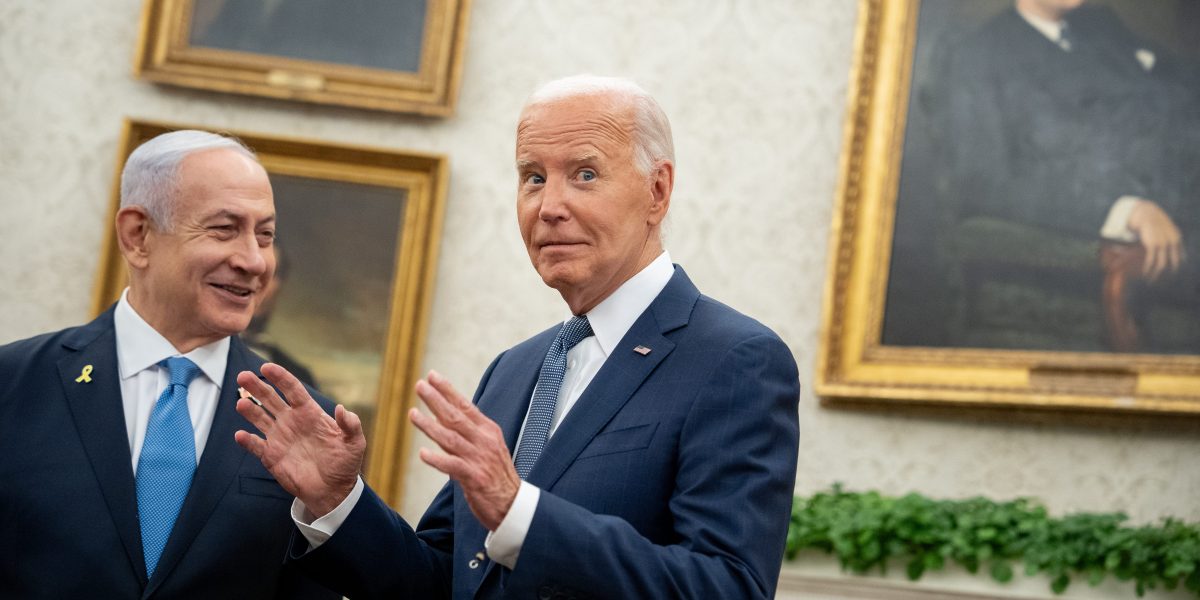On July 25, 2024, President Joe Biden met with Israeli Prime Minister Benjamin Netanyahu at the White House, a moment that unfolds against a backdrop of escalating tensions in the Middle East. Almost a decade ago, as the United States was on the verge of a landmark agreement aimed at curtailing Iran’s nuclear ambitions, former President Barack Obama offered a stark warning to those seeking to undermine the accord: “Let’s not mince words: The choice we face is ultimately between diplomacy and some form of war — maybe not tomorrow, maybe not three months from now, but soon.”
While Obama successfully negotiated the deal in 2015, it unraveled swiftly when President Donald Trump unilaterally withdrew from it less than three years later, effectively putting the agreement to rest. This led to warfare akin to what Obama had predicted. Recently, Israel launched extensive military operations against Iranian military targets, nuclear sites, and even civilian areas, prompting Iran to retaliate.
Though it would be easy to attribute the current conflict solely to Trump and Netanyahu, this perspective overlooks the failures of those who had opportunities to restore the Obama-era agreement and avert the dire situation we face today. Some share of responsibility must fall on President Biden, who, despite having served as Obama’s vice president, failed to right the course upon taking office.
Upon his inauguration in 2021, Biden vowed to reverse several of Trump’s decisions to restore a sense of normalcy in foreign policy. While he quickly moved to dismantle policies like the travel ban and rejoined the Paris climate agreement, his approach to the Iran nuclear deal proved to be more complex. Early in his administration, Biden indicated that any return to the agreement would be contingent on Iran addressing its advancements in nuclear technology, a stance that delayed negotiations that required urgent attention.
This delay not only stalled the deal itself but also influenced broader regional dynamics. Many analysts believed Biden needed to act swiftly to restore the accord before the Iranian presidential elections that summer, which could bring hardliners back into power—politicians who staunchly opposed the nuclear deal.
Contrary to expectations, instead of prioritizing the restoration of the deal, Biden directed his advisors to focus on domestic issues, sidelining Middle Eastern diplomacy. By the time negotiations recommenced, they faced significant obstacles, including interference from congressional hawks and Israel’s own strategic moves against Iran, such as a 2021 attack on the Natanz facility just as discussions were set to begin.
Ultimately, Biden’s administration failed to strike a deal before Iran’s leadership shifted to a more hardline government, allowing Tehran to significantly advance its nuclear capabilities, raising the specter of a much graver crisis. By the campaign’s conclusion, Biden’s team was not contemplating diplomatic solutions; instead, they found themselves discussing possible military strikes against Iran to curtail its nuclear ambitions.
With hundreds of civilians lost and destruction spread across multiple regions, the situation is decidedly worse than it was a decade ago. As the conflict continues, there is uncertainty around whether Trump will pursue a diplomatic approach, as he had done briefly earlier in the year, or if he will follow Biden’s example of compliance with Netanyahu, risking further military entanglements.
Historical perspective reveals that, during his tenure, Obama faced criticism for delaying strategies; however, in hindsight, striking diplomatic deals remains the only viable option to effectively limit Iran’s nuclear program. The recent military actions have not only failed to dismantle Iran’s capabilities—now relocated to undisclosed sites—but have likely exacerbated tensions moving forward.
These events serve as a reminder of the importance of diplomatic engagement. To avoid a repeat of the tragic consequences seen in this ongoing conflict, it is essential to examine the collective failures that led to this escalation, with President Biden undeniably among those accountable.

